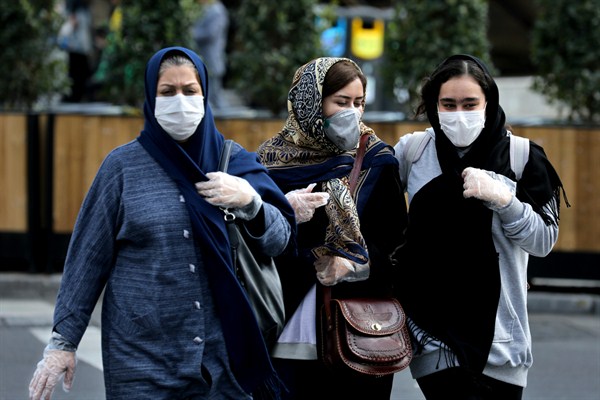Observers in and out of Iran are convinced the government is lying, at great risk of a pandemic. Cases of coronavirus traced back to Iran have been identified over a wide span of the globe, from Afghanistan to Canada.
The outbreak in Iran, at the heart of the world’s most unstable region, has thrown a new and potentially explosive element of uncertainty into the Middle East. Iran was already facing steep challenges at home and abroad, from domestic dissent to a regional backlash against its influence to pressure from the United States. But the regime’s reaction to this public health crisis is likely to weaken its hand on all those fronts.
Iran’s response to the coronavirus so far has mostly been obfuscation. The regime delayed reporting its first cases and has persisted in downplaying the extent of the virus’ spread. After Iranian officials reported only a handful of cases, a member of parliament shot back that in his constituency alone, in the holy city of Qom, 50 people had already died. Rather than spring into action, Iran’s Health Ministry rejected those figures, and Ali Shamkhani, the secretary of Iran’s Supreme National Security Council, tasked the prosecutor general with investigating the lawmaker’s claim. “Spreading untrue reports and hiding the truth both disrupt national security and undermine the social capital,” Shamkhani declared.

